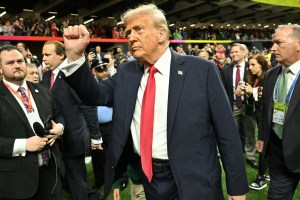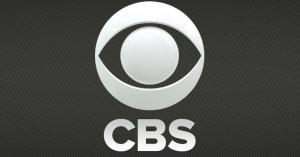Negotiations over the second stimulus check are on hold at the moment but expected to start back up this month. While the United States Senate has not been in session for most of August, the talks will not necessarily start up at exactly the same place they left off. A few shifts have ensured that the debate will hit the ground running next month.
Both legislatures in the U.S. Congress opted to end their sessions and leave Washington, D.C. this month for their previously scheduled recesses, although the House of Representatives did return for an emergency hearing on the U.S. Postal Service. Still, the Republican-controlled Senate does not return until Tuesday, Sept. 8, and many Americans believe their elected officials are already well overdue to pass a new stimulus check.
Videos by PopCulture.com
While the lawmakers have not been in formal sessions during this time, they have had at least some private meetings to negotiate the terms of the deal. Additionally, the public discourse around stimulus checks has hardly slowed, increasing the pressure on lawmakers to get something done. With the 2020 presidential election approaching quickly, all of them want to have something to show for their time to help their chances of retaining their office.
Still, there are some issues still to be worked out, and political games that can only be played in the session. Finally, Congress can only conduct a formal vote during a session with as many representatives as possible in attendance. Here is a look at where the process stands going into September.
Democrats ‘Not Budging’

On Thursday, House Speaker Nancy Pelosi told reporters that she and other Democrats are “not budging” on the price tag for the new stimulus package — $2.2 trillion, according to a report by Forbes. Democrats wanted to spend about $3 trillion on their HEROES Act back in May, and Republicans ignored that bill until July when they proposed the HEALS Act at about $1 trillion. Pelosi insists that they should meet in the middle.
“We have said again and again that we are willing to come down [and] meet them in the middle,” Pelosi said of the deal, following a phone call with White House chief of staff Mark Meadows. “That would be $2.2 trillion. When they’re ready to do that, we’ll be ready to discuss and negotiate. I did not get that impression on that call. That could be a very short conversation if they’re not willing to meet in the middle. We’re not budging. They have to move.”
Trump’s Lowest Offer

Meanwhile, President Donald Trump has reportedly settled on a spending minimum that he is comfortable with as well — $1.3 trillion, according to The Hill. The number was presented by Meadows. While packages like this must come from Congress, the president signs bills into law, and he is hoping to capitalize on that to gain support in the upcoming election.
Senate Republicans’ Other Option

According to a report by Forbes, there is a way that the Senate could pass a stimulus bill with very little bipartisan support from the House if it was far smaller than previous suggestions. They are reportedly working out a plan for a $500 billion bill, which would include enhanced unemployment of $300 per week, funding for schools, small business loans, coronavirus testing and vaccines, liability protections for business owners, and about $10 billion for the U.S. Postal Service. However, this bill would not include stimulus checks or student loan debt relief.
EIP Cards
#EIPCards come in a plain white envelope to guard against fraud. If you lost or threw away your EIP card call 1-800-240-8100 for a FREE replacement (option 2 from main menu). pic.twitter.com/m5XwhSsjT9
— Monica Crowley (@TreasurySpox) May 29, 2020
While there have been few promising developments on the negotiations themselves, U.S. government officials have pointed out how much more quickly the stimulus checks can be disbursed this time around — once they are passed. In addition to having up-to-date information on file from the last round, U.S. Treasury officials are now espousing the benefits of Economic Impact Payment Cards, or EIP cards.
The cards function like a regular debit card, and the money on them can be transferred to a bank account or used directly. They are secure, cheap and easy to send out, but not until the legislation is in place.
Disbursement Timeline

As the negotiations drag on, the projection for when a stimulus check might go out falls back, now landing somewhere in October. If the U.S. Congress agrees on a package quickly after the Senate returns to Washington, then Americans can hope to have a check-in their hand in early October. Financial analysts, such as those at The Motley Fool, have largely agreed with this assessment. For many, this will be too little, too late.
Economists’ Perspective

While Republicans wring their hands about the increased government spending, economists in both the public and private sectors have broken down how another stimulus check would help support the financial ecosystem, and how the lack of one would harm it. One of the latest of these came from former Federal Reserve official Dennis Lockhart, who appeared on CNBC on Friday.
“I continue to believe that looking forward you have to consider a range of scenarios and among those scenarios would be, obviously, a pessimistic one and that could be a double-dip,” Lockheart said. “If things go badly with the management of the virus and there’s more cascading — which (Thursday’s) numbers of initial claims might suggest — then yes, it’s possible we have a double-dip. I don’t think that’s probably the base case, but I think it’s still possible.”
Likely Outcomes

Finally, predictions are difficult to make from the sidelines, but many analysts have done their best to narrow down the most likely course of events in the upcoming stimulus check negotiations. According to Forbes writer Zack Friedman, the top three are: (1) the stalemate continues and there is no stimulus deal; (2) Republicans pass a “skinny bill” as described above; or (3), Republicans agree to Democrats’ $2 trillion compromises.
Friedman identified this last option as the least likely, and a continued stalemate as the most likely. However, like many others, he noted that this would be politically harmful to everyone involved who is seeking re-election. Hopefully, the lawmakers can come to an agreement in the weeks to come.








